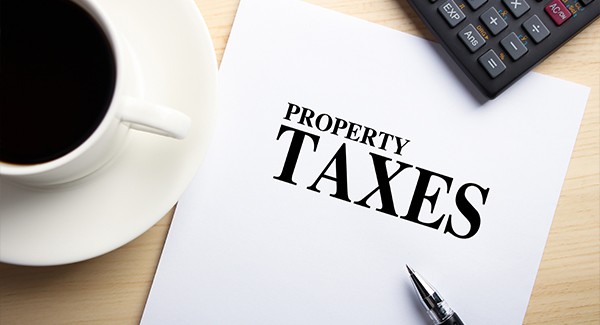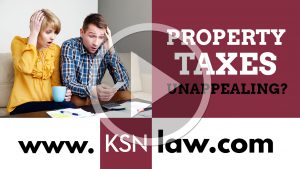As an Illinois property owner, it’s unlikely you have remained unaffected by the current state of property taxes. Whether you live in a single family home or in a condominium that is part of an association, here are four factors that may put your property tax assessment in perspective:
- Illinois has the highest property taxes in the nation. A Corelogic study released on April 27, 2016 revealed that Illinois has the highest property tax rate in the United States. By comparison, Hawaii has the lowest.
- Illinois residents would leave the state due to high property taxes. On October 10, 2016, a Paul Simon Public Policy Institute poll revealed that 47% of Illinois registered voters said they would leave the state if they could. Taxes were the number one reason.
- Foreclosures continue to increase; property values stay the same or decrease. According to ATTOM Data Solutions’ U.S. Residential Property Vacancy and Zombie Foreclosure Report, nearly 1.4 million residential properties were vacant by the end of the third quarter in 2016. Illinois has the third highest amount of “zombie homes” or vacant foreclosures. At the city level, Chicago has the second highest amount of vacant properties owned by a lender, only second to Detroit. Stagnant home values and a poor housing market can make it harder to sell a home in Illinois.
- Chicago residents are paying even higher property taxes. Shortfalls in the police and fire pension funds have forced the City of Chicago to increase tax bills. In 2016, the average Chicago homeowner paid an additional 13% in property taxes .
Additionally, a large number of Chicagoland homes will be reassessed in 2017 as part of the Cook County Assessor’s Office township triennial reassessment schedule. Homeowners in south suburbs such as Oak Park, Homewood, and Tinley Park may be looking at substantial assessment increases. For example, northwest suburban homeowners saw property assessments increases between 15%-25% in 2016.
So what can you do about it?
Unlike other costs involved with owning property (like mortgage payments or utility bills), tax assessments can and should be appealed. While many counties have streamlined the ability to file an appeal, winning an appeal is a whole other matter. Successful appeals require concise and compelling evidence. Moreover, filing deadlines can pass without notice to homeowners preventing them from even contesting their assessment.
Association assessment appeals require more careful analysis and preparation. They should be filed as a group on behalf of all units to streamline the process. This will benefit all unit owners and ensure uniformity of taxation within the association. There are several agencies and levels in which to appeal, each with its own caveats and pitfalls. Accordingly, Associations should seek out skilled legal counsel to steer them through this process. When you receive your 2017 property tax assessment notice, request that your Board hire a competent attorney in this field to represent the association in the appeal.
KSN can help.
KSN’s tax counsel has successfully appealed property tax assessments for thousands of local homeowners. In 2015, we assisted over 630 Illinois associations, saving them over $32 million through property tax appeals. Our law firm does not charge an upfront fee and you do not pay a penny unless we obtain a reduction to your property tax assessment.
Do not let the Assessor’s deadline expire before you have a chance to appeal. Call KSN today so that we have time to help. KSN Tax Attorney Timothy Jacobs can be reached at 847-777-7270 or tjacobs@ksnlaw.com.
Since 1983, KSN has been a legal resource for condominium, homeowner, and townhome associations. Additionally, we represent clients in real estate transactions, collections, landlord/tenant issues, and property tax appeals. We represent thousands of clients and community associations throughout the US with offices in several states including Florida, Illinois, Indiana, and Wisconsin.
This article is made available by the lawyer or law firm publisher for educational purposes only as well as to give you general information and a general understanding of the law, not to provide specific legal advice. By reading this article you understand that there is no attorney client relationship between you and the article author. This article should not be used as a substitute for competent legal advice from a licensed professional attorney in your state. © 2017 Kovitz Shifrin Nesbit, A Professional Corporation.


